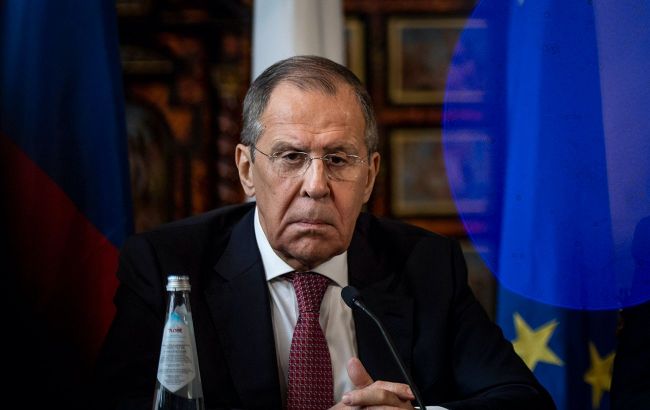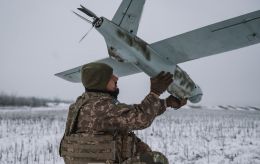Russia uses conflict in Middle East to strengthen its influence - ISW
 Photo: Russian Foreign Minister Sergey Lavrov (getty images)
Photo: Russian Foreign Minister Sergey Lavrov (getty images)
The Kremlin seeks to leverage the conflict in the Middle East to advance international structures dominated by Russia. This includes efforts by the Kremlin to create an alternative Eurasian security architecture, according to the Institute for the Study of War (ISW).
On October 1, Russian Deputy Foreign Minister Mikhail Bogdanov condemned the Israel Defense Forces' ground operation in southern Lebanon during a meeting with the Lebanese ambassador to Russia. He emphasized that Russia opposes what it terms Israeli political assassinations.
Anatoly Viktorov, Russian Ambassador to Israel, called for an immediate cessation of the conflict in the Middle East, while Foreign Minister Sergey Lavrov met with ambassadors from unspecified Arab states and urged an immediate halt to military operations in the Israeli-Palestinian conflict zone.
"The Kremlin likely seeks to take advantage of the conflict in the Middle East to promote Russian-dominated international structures, including some connected to the Kremlin's effort to establish an alternative Eurasian security architecture," according to a publication from the Institute for the Study of War (ISW).
On October 2, Russian Deputy Foreign Minister Sergey Ryabkov announced that Palestinian Authority President Mahmoud Abbas accepted Russia's invitation to attend the BRICS summit in Kazan from October 22 to 24. He stated that participants would discuss the situation in the Middle East.
As a reminder, according to the Defense Intelligence of the Ministry of Defense of Ukraine, Russian authorities were aware of Hamas militants' preparations for the attack on Israel that occurred on October 7, 2023. Additionally, Moscow provided the terrorists with weapons seized during the war against Ukraine.
Arkady Mil-Man, former Israeli Ambassador to Russia, believes that Russia is interested in a large-scale war in the Middle East.

